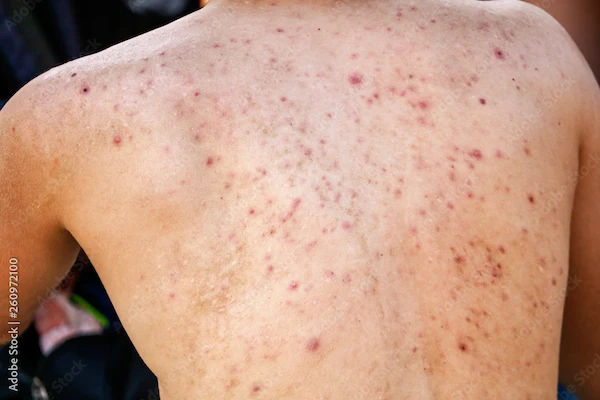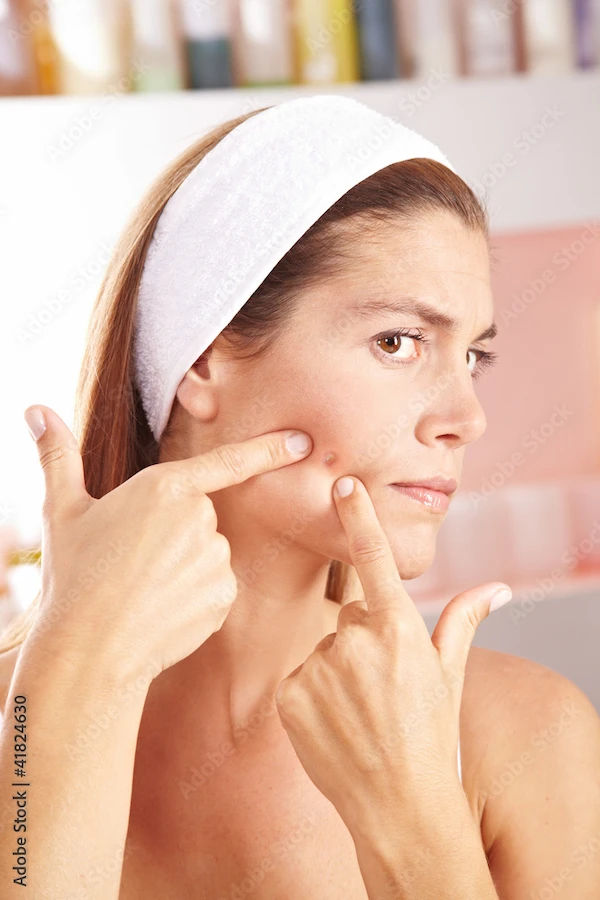The Ultimate Guide to Face Masks for Acne
Discover the power of face masks in your acne battle! This guide explores various types of face masks for acne. Learn how to choose the right mask for your skin type, understand their benefits, and create a personalized skincare routine for clearer, healthier skin.

Written by Dr Sonia Bhatt
Last updated on 13th Jan, 2026
Acne is a common skin condition that affects millions of people worldwide. Whether you’re dealing with occasional breakouts or persistent cystic acne, finding an effective treatment that works for your skin type and lifestyle is essential. One popular and accessible method for managing acne is using face masks.
Face masks can provide targeted relief for acne-prone skin, helping to reduce inflammation, clear clogged pores, and even prevent future breakouts. However, with so many different products and ingredients available, knowing which mask is right for you can be challenging. This guide will explore the benefits of face masks for acne, the most effective types, and how to use them as part of a comprehensive skincare routine.
What Are Face Masks for Acne?
Face masks for acne are skincare products designed to target and treat acne-prone skin. They typically contain active ingredients like salicylic acid, benzoyl peroxide, tea tree oil, or charcoal, which help to unclog pores, reduce inflammation, and kill bacteria that cause acne. These masks can be used once or twice a week as part of a regular skincare routine to help improve the appearance of acne and prevent future breakouts. While face masks should not replace other acne treatments, they can be a valuable part of your overall skincare regimen.
Acne occurs when hair follicles become clogged with oil (sebum), dead skin cells, and bacteria. This blockage can lead to the development of pimples, blackheads, and cysts. Face masks for acne typically target one or more of the following causes:
Excess Oil Production: Certain masks absorb excess sebum to prevent clogged pores.
Bacterial Growth: Masks containing antibacterial ingredients can help reduce the number of acne-causing bacteria on the skin.
Skin Inflammation: Many masks contain anti-inflammatory ingredients that calm the redness and irritation associated with acne.
Dead Skin Build-Up: Exfoliating masks help remove dead skin cells to prevent pores from becoming clogged.
Face masks for acne are available in various forms, such as clay masks, sheet masks, peel-off masks, and overnight masks. Each type works differently depending on its formulation and intended use.
Common Ingredients in Face Masks for Acne
To effectively address acne, it’s important to look for masks that contain ingredients known to help treat and prevent breakouts. Here are some of the most common and beneficial ingredients found in acne masks:
1.Salicylic Acid (Beta-Hydroxy Acid)
Salicylic acid is a go-to ingredient for acne treatment. It works by penetrating the pores to dissolve the dead skin cells and excess oil that can cause blockages. Salicylic acid also has anti-inflammatory properties, which help calm irritated skin. Look for masks that contain 1–2% salicylic acid for an effective acne treatment.
2.Benzoyl Peroxide
Benzoyl peroxide is a powerful acne-fighting ingredient that works by killing the bacteria responsible for acne. It also helps reduce the production of sebum, preventing future breakouts. Masks with benzoyl peroxide are great for those with more severe acne, such as cystic or inflammatory acne.
3.Clay (Bentonite or Kaolin)
Clay masks are known for their ability to absorb oil and impurities from the skin. Bentonite and kaolin are two types of clay commonly found in acne treatments. These clays help to deeply cleanse the skin by drawing out excess oil and toxins while tightening pores. They are best suited for oily and combination skin types.
4.Tea Tree Oil
Tea tree oil is a natural antibacterial and anti-inflammatory agent. It helps to reduce acne-causing bacteria and calm inflammation. It’s particularly beneficial for those with mild to moderate acne. Tea tree oil masks can be gentle and soothing, making them ideal for sensitive skin.
5.Activated Charcoal
Activated charcoal works by binding to impurities in the skin, drawing out toxins, and unclogging pores. It’s especially helpful for those with oily skin and clogged pores. Charcoal masks are also known to absorb excess oil, making them ideal for acne-prone individuals.
6.Aloe Vera
Aloe vera has cooling and soothing properties that help calm irritated skin. It also has mild antibacterial and anti-inflammatory effects, making it beneficial for reducing acne redness and inflammation. Aloe vera masks are excellent for sensitive skin or for those experiencing inflammation due to active breakouts.
7.Sulfur
Sulfur has natural antibacterial properties and helps to dry out pimples while absorbing excess oil. It is often used in combination with other acne-fighting ingredients to treat active breakouts. Sulfur masks are typically recommended for people with oily or combination skin.
Types of Face Masks for Acne
Several different types of face masks are available, each serving a unique purpose in acne treatment. Here are the most common types:
1.Clay Masks
Best For: Oily and combination skin types.
How to Use: Apply the mask to your face and leave it on for 10-15 minutes or until it dries. Rinse off with warm water.
Benefits: Clay masks absorb excess oil and impurities, helping to draw out toxins and exfoliate dead skin cells, preventing clogged pores.
2.Peel-Off Masks
Best For: People with blackheads or clogged pores.
How to Use: Apply the mask in a thin layer, wait until it’s fully dry, and then gently peel it off. Follow up with moisturiser.
Benefits: Peel-off masks dry into a film that can be peeled off, removing dead skin cells and unclogging pores.
3.Sheet Masks
Best For: Dry or sensitive acne-prone skin.
How to Use: Place the mask on your face and leave it on for 10-20 minutes. Remove and gently pat in the excess serum.
Benefits: Sheet masks are pre-soaked with serums that target various skin issues, including acne, hydrating, calming inflammation, and promoting healing.
4.Overnight Masks
Best For: Sensitive or dry skin types.
How to Use: Apply a thin layer to clean skin before bed, and leave it on overnight.
Benefits: Overnight masks allow ingredients to deeply penetrate the skin while you sleep, reducing inflammation and promoting skin healing without rinsing.
How to Use Face Masks for Acne Effectively
While face masks can be a helpful addition to your acne skincare routine, they should be used in moderation to avoid irritation. Here are some tips for using face masks effectively:
Cleanse Before Applying: Always wash your face thoroughly before applying a face mask. This ensures that your skin is free from dirt, oil, and makeup, allowing the mask to work more effectively.
Patch Test First: If you’re using a new product, do a patch test on a small area of your skin (such as your jawline) to ensure you don’t have an adverse reaction.
Don’t Overuse Masks: Limit the use of acne masks to 1-2 times per week to avoid over-drying or irritating your skin. Overuse can lead to skin sensitivity and exacerbate breakouts.
Follow Up with Moisturizer: After using a face mask, apply a gentle, non-comedogenic moisturiser to help restore hydration and balance your skin.
Be Consistent: Consistency is key in acne treatment. While face masks can provide quick relief, they work best when used as part of a complete skincare routine, which should include cleansing, moisturising, and using acne-targeted treatments.
Conclusion
Face masks for acne can be an effective, accessible way to improve the appearance of your skin and manage breakouts. By selecting the right ingredients for your skin type and using them properly, you can see visible improvements in your acne treatment plan. Remember that while face masks can complement your skincare routine, they should not replace other essential acne treatments, such as topical medications or professional dermatological advice. If you're unsure which mask is best for your skin, consult a dermatologist for personalised recommendations.
Consult Top Dermatologists
Consult Top Dermatologists

Dr. Pranoti Deshpande
Dermatologist
5 Years • MBBS, MD (Dermatology, Venereology and Leprosy)
Hyderabad
Apollo Hospitals D R D O kanchanbagh, Hyderabad
(175+ Patients)
Dr. Divya Arora
Dermatologist
14 Years • "MD, DNB, SCE (RCP, London) Fellowship Dermatosurgery (ACSI) Fellowship in Hair Transplant (IADVL)"
Lucknow
Apollomedics Super Speciality Hospital, Lucknow

Dr. Somshukla Ray
Dermatologist
10 Years • MBBS, MD (Dermatology,Venerology & Leprosy), DNB (Dermatology,Venerology & Leprosy)
Kolkata
MCR SUPER SPECIALITY POLY CLINIC & PATHOLOGY, Kolkata

Dr. Priyankar Misra
Dermatologist
11 Years • MBBS, MD Dermatology , Venereology & Leprosy
Kolkata
MCR SUPER SPECIALITY POLY CLINIC & PATHOLOGY, Kolkata

Dr. Arisha Salam
Dermatologist
6 Years • MBBS, MD, DVL, Fellowship in Paediatric Dermatology (Singapore) Fellowship in Dermatosurgery Lasers and Aesthetics
Bengaluru
Apollo Clinic, JP nagar, Bengaluru


